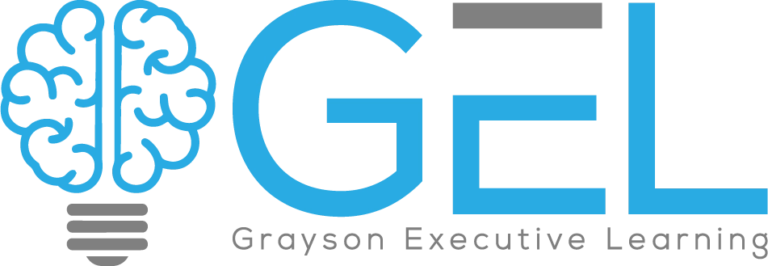Many students who grapple with ADHD lack focus, which can negatively impact academic performance. This condition is the bane of students who struggle constantly to stay organized. But there is hope for your productivity! You can master the organizational skills to organize, prioritize, and complete tasks. Embarking on an empowering journey of professional development, Organizational Skills Training equips individuals with the essential tools and strategies to enhance their efficiency and effectiveness in the classroom.
Let’s dig deep into the world of organizational skills training, exploring the crucial “whys” and discovering a clear understanding of the “hows.” Through these actionable strategies, you can unleash your school performance to new heights and reshape your future professional career.
Master Essential Time Management Skills and Task Prioritizing Techniques
Effective time management is the cornerstone of success. Learners with attention deficit hyperactivity disorder often list time management skills among their top executive function deficits.
For students with ADHD, utilizing tools like planners, digital calendars, and task management apps can be game-changers in managing time. Several techniques can help younger children, teens, and young adults get in the habit of efficiently approaching any job task.
- Break down larger tasks into smaller, more manageable steps, and set realistic deadlines. Writing down these steps can reduce stress by letting you see what you’ve already accomplished.
- Embrace the Pomodoro Technique, a time management method that involves focused work intervals and short breaks. For example, take 25 minutes to focus on a study task with a 5-minute break after. After four consecutive work intervals, a longer break of 15 to 30 minutes can be taken. Think of it as strength training for your brain!
Through consistent practice, students can cultivate a sense of control over their schedules and achieve a self-reliant mental outlook with time management skills.
Enhance Working Memory and Information Retention
Consider some organizational strategies in the realm of cognitive enhancement. Organization is only partly about your notes and the tasks you choose to complete first. It’s also about how you organize your thoughts and improve your memory.
Techniques like visualization and mnemonic devices can significantly boost working memory. Incorporate active learning strategies, such as teaching the material to someone else until you master the concepts. Or use flashcards to provide an overview of the important concepts in assignments.
Explore various note-taking perspectives to find what works best for you. There’s more than one way to take notes? Yes!
- The Cornell Method: This manner of notating discourages using long sentences. It’s all about writing short notes in the right-hand column using recognizable abbreviations and symbols. Before starting, draw up a list of abbreviations and expressions that you will use throughout the notes consistently.
- The Mapping Method: This visual tool helps connect knowledge concepts with underlying relationships. It aims to help students see the whole picture by drawing a graphical representation such as a flow chart or mind map. In this way, a student can relate material within a course or between related courses.
By actively engaging with the material, students can retain information more efficiently. This makes them better students in the short term and, eventually, better employees and team members in the workplace.
Strengthen Problem-Solving and Decision-Making Abilities
Problem-solving is a skill that can be honed through practical exercises. Consider getting supervision from your support network so that you can avoid procrastination. Here are a few tips on exercising your problem-solving prowess:
- Encourage critical thinking by solving puzzles, brainteasers, and real-life scenarios. This makes abstract concepts more real and lets your brain process information more effectively.
- Foster decision-making abilities by weighing pros and cons, considering potential outcomes, and seeking input from mentors or peers. Talk out your thought processes to develop effective communication skills.
- Embrace a growth mindset that views challenges as opportunities for growth. A challenge can be a new pathway instead of a brick wall.
Manage Impulsivity and Emotion Regulation
Impulsivity can be channeled positively through mindfulness practices. Access your full potential by working on these organizational skills to gain different perspectives and mental resources.
- Schedule short mindfulness exercises into your daily routine to enhance self-awareness and control.
- Develop a coping toolkit with skills like deep breathing, visualization, or quick physical activities to redirect impulsive tendencies.
- Journaling can also be a powerful tool for self-reflection, helping students navigate and regulate their emotions more effectively.
Improve Communication Skills
Organizational skills training will only get you so far. Students must develop the ability to communicate clearly with teachers and peers. This is training for later in life when this will be a necessary business skill for employees and a relationship skill with family and friends.
Be bold and ask questions. Restate what others have said to make sure you have a full understanding of what’s being said.
Maintain Balance in Your Academic and Personal Life
Achieving balance requires planning. Create a weekly schedule that allocates time for academics, self-care, hobbies, and social interactions. Prioritize tasks based on importance and deadlines.
Learn to say no when necessary to avoid being overwhelmed. Establishing boundaries and communicating effectively with peers and professors can create a harmonious balance between academic responsibilities and personal well-being.
Benefit From an Organizational Skills Training Course
As we conclude our exploration of organizational skills mastery, remember that every small step adds to significant progress.
Embrace these practical tips, make them your own, and witness the transformation in your academic journey. The path may have challenges, but you have the tools to overcome them.
Rewrite your narrative on what it means to be a student with ADHD, proving that success is not just achievable but entirely within your grasp.




